|
The 33rd Chicago
Blues Festival 2016
Friday
Afternoon 10th June 2016
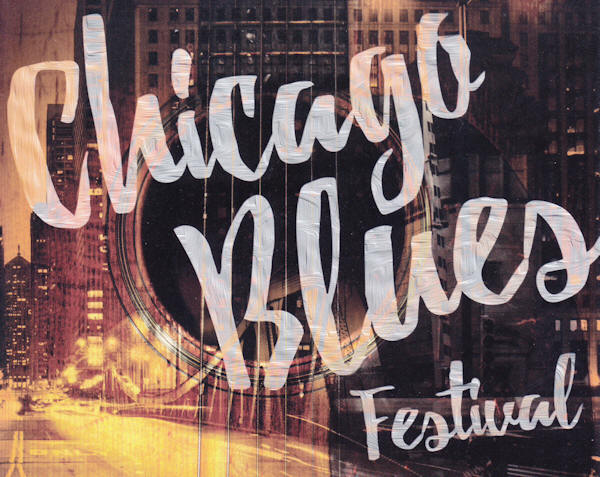
|
|
Peaches Staten |
|
|
Peaches Staten is a world-class entertainer who
is known for spreading the joy of blues. One week she is in
Europe, the next in South America, back to the states then off
again at the drop of an e-mail to some corner of the world.
Peaches was born in Doddsville, MS, but grew up in the thriving
Chicago Blues scene and was raised on gospel, blues and soul.
Her stepfather was a disc jockey for several of Chicago’s swank
Westside clubs and her mother was a member of a social club that
hosted parties for well-known blues musicians. She began her
professional career in a zydeco band and an Afro Brazilian Samba
ensemble and has gone on to work with the best that the Blues
scene has to offer. She’s a little bit of Tina, Etta and Koko
all in one. Her gutsy, growling and energetic show has made her
one of the foremost headliners on the Chicago blues scene.
Peaches Staten has shared the stage and recorded with some of
the best in the business such as Katie Webster, C.J. Chernier,
Johnny B. Moore, the late Buddy Scott, Billy Branch, Carl
Weathersby and others. Early in her career she was featured in
Women in Blues Revues with Chicago veterans Bonnie Lee and Karen
Carroll. Her untamed energy electrifies the audience never
failing to get them on their feet. She is a talented performer
who possesses an impeccable rhythmic and musical style. |
|
|
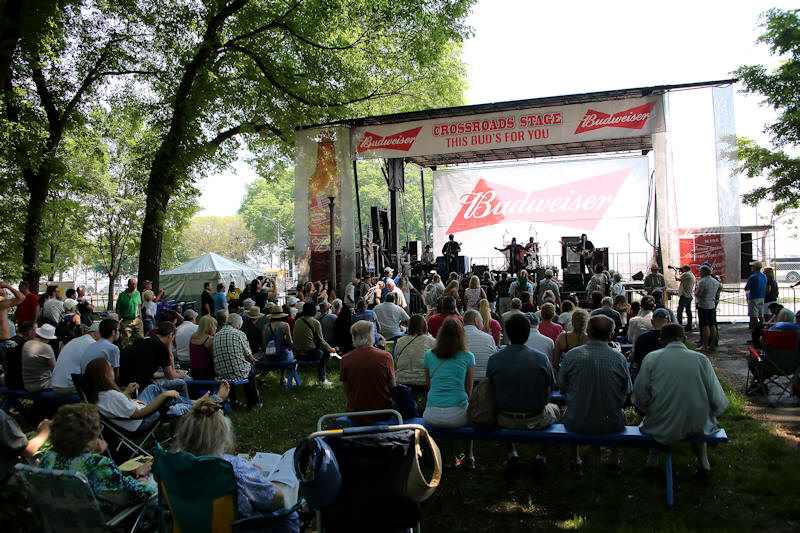

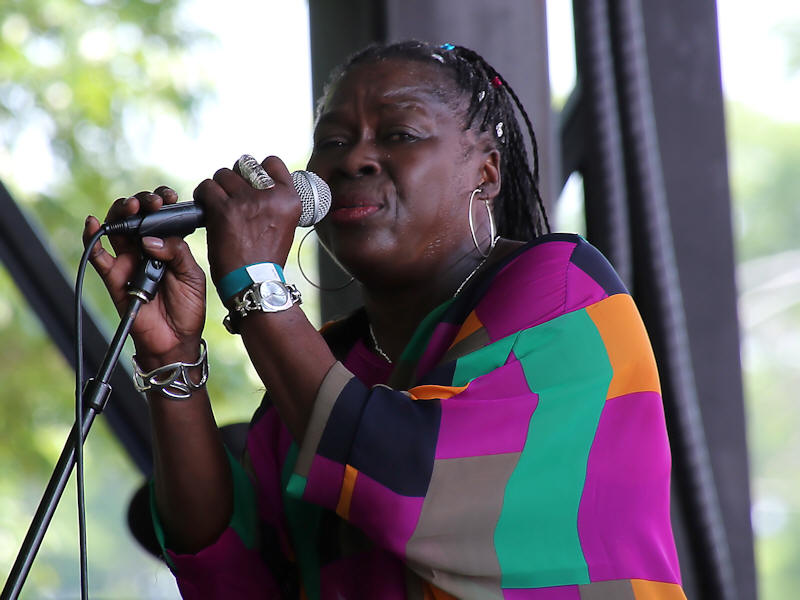
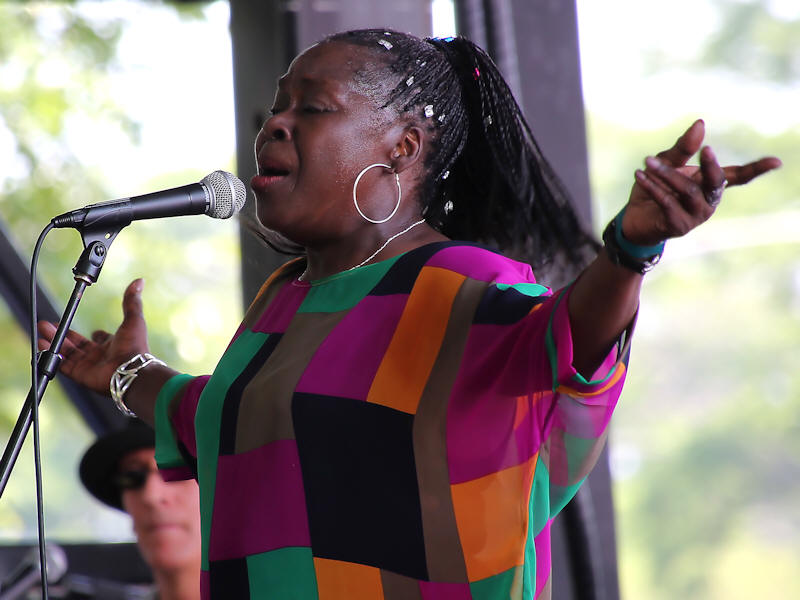
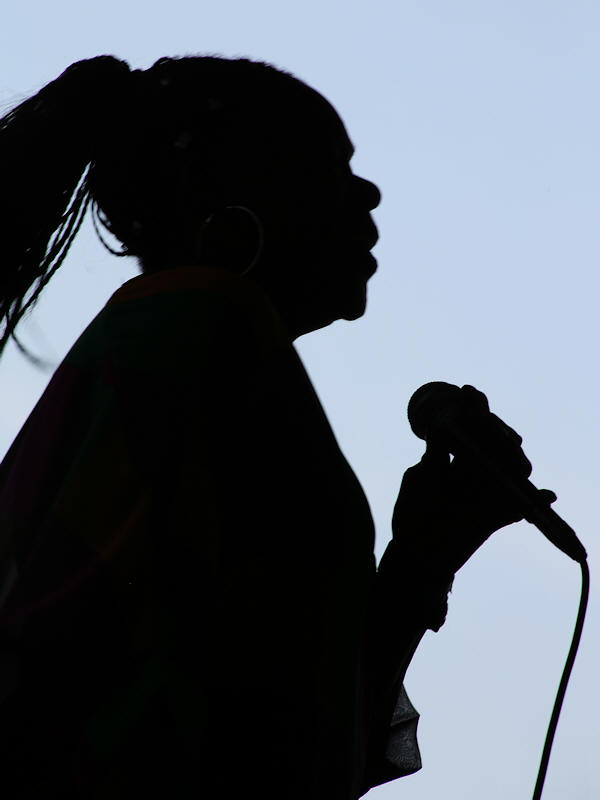
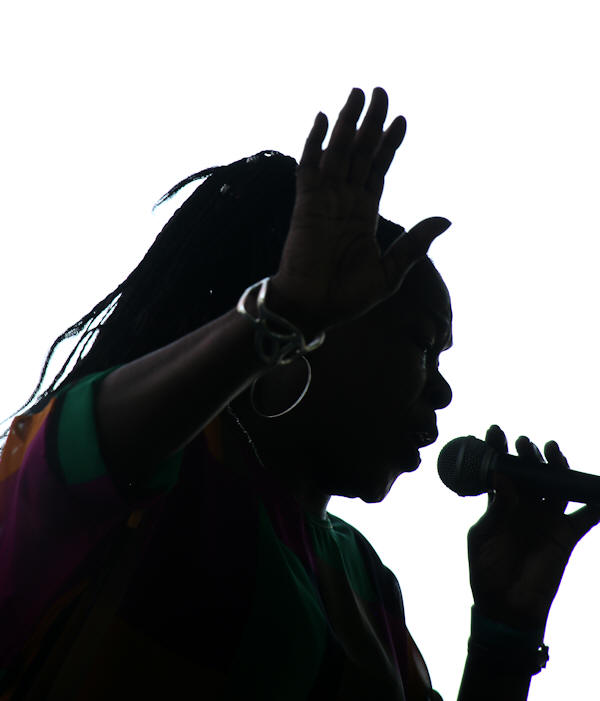
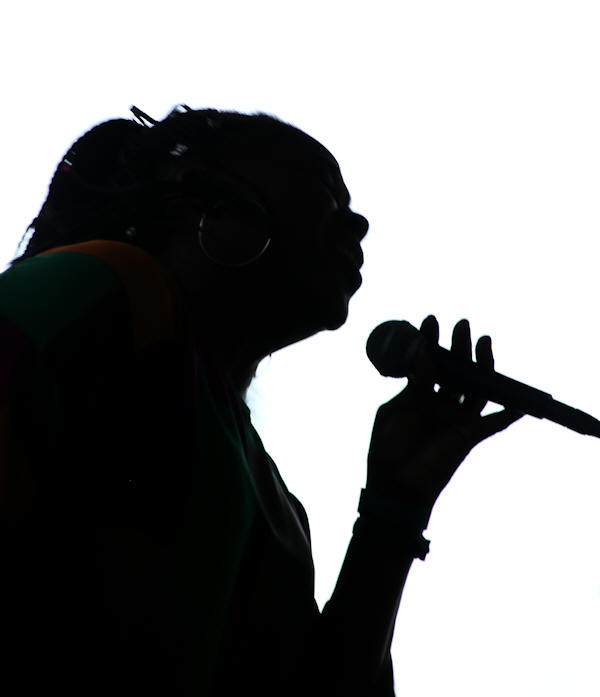
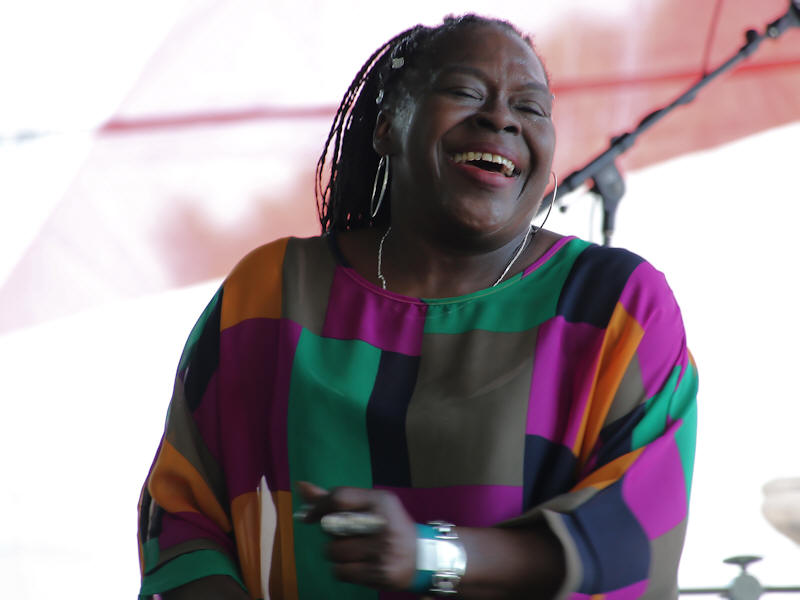
|
|
Maurice John Vaughn
|
|
|
Maurice John Vaughn is a
guitarist, saxophonist, keyboardist and singer. He began playing
professionally in 1968 as a saxophonist in Chicago R&B groups.
He recorded with The Chosen Few in 1976, and played and recorded
with Phil Guy, went on tour in Canada in 1979. He played as a
sideman with Luther Allison, Son Seals, Junior Wells, Valerie
Wellington, and A.C. Reed. His debut solo record was 1984's
Generic Blues Album, released in plain white packaging on
his own Reecy Records record label; Alligator Records reissued
it in 1987.[2]
In the 1990s, Vaughn played with Detroit Junior, but spent much
of his time working in A&R for Appaloosa Records, and produced
albums by Shirley Johnson, Zoom, Maxine Carr, B.J. Emery, and
Velvet McNair. Vaughn and his band backed up Detroit Junior on
the latter's two releases on Blue Suit Records, "Turn Up The
Heat" and "Take Out The Time." In 1994, his song "(Everything I
Do) Got To Be Funky" was released on the soundtrack for the film
Major League II. The song was also a part of his 1993
release, In the Shadow of the City. |
|
|
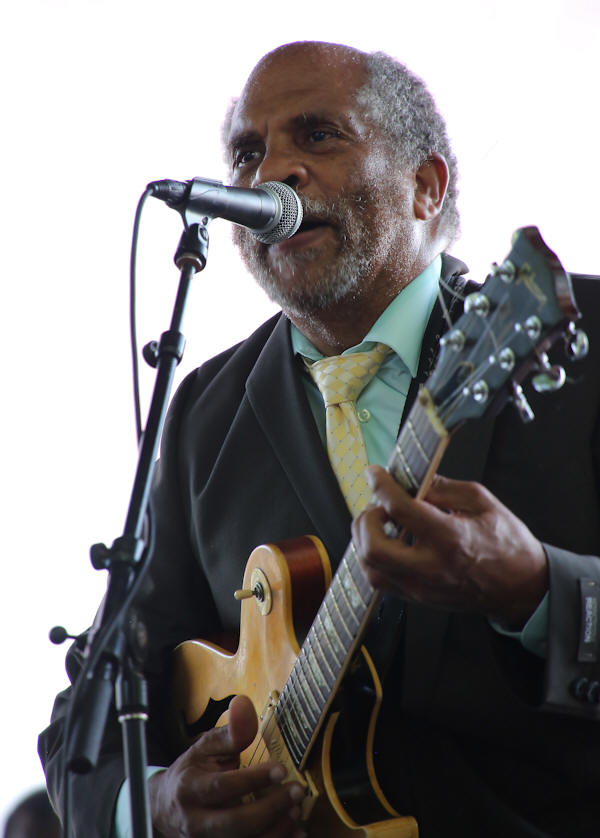
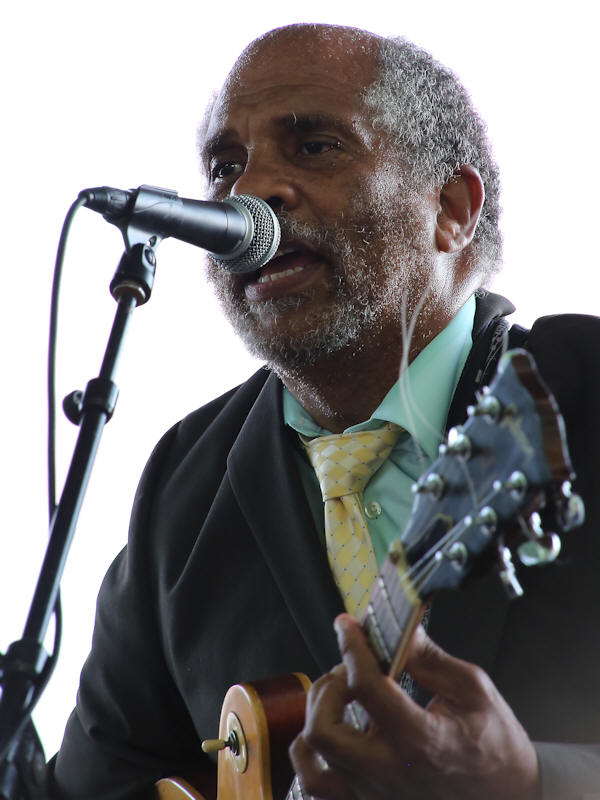
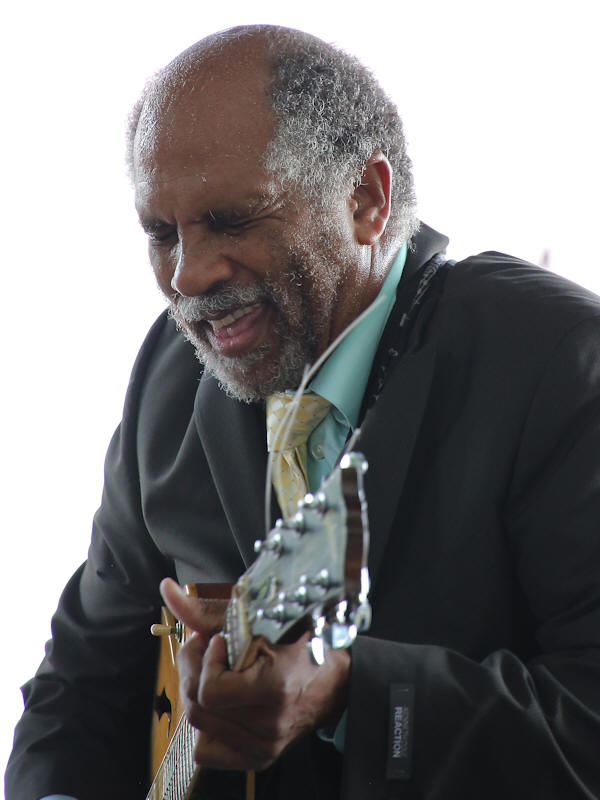
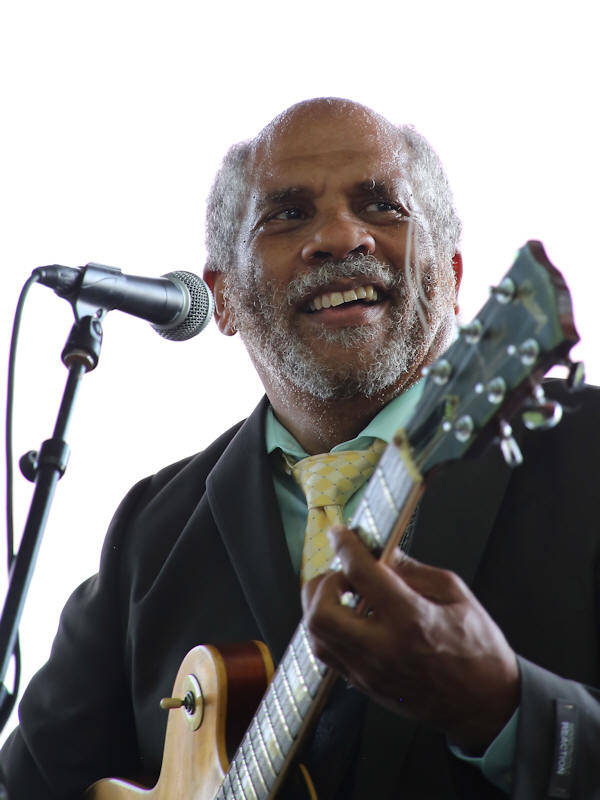
|
|
Moreland & Arbuckle |
|
|
Aaron Moreland (guitarist) was born December 16,
1974. He describes their music as "gritty blues and roots rock
from the heartland." He played in a number of garage bands while
growing up and was influenced by punk music. He changed course
and focused on blues music after hearing "Death Letter Blues" by
Son House. Dustin Arbuckle (vocalist / Harmonica / blues harp)
was born December 25, 1981. He first discovered blues in his
mid-teens. "Getting into blues made me want to play music," he
says. He played in blues-rock bands while learning to sing with
soulful authority. They are backed by drummer Kendall Newby.
The two met at an open mic session in their
hometown of Wichita, Kansas in 2001 and they quickly bonded and
formed an acoustic duo playing traditional and delta blues. The
all acoustic duo saw their start after reaching the finals at
the 2005 International Blues Competition in Memphis, Tennessee,
and followed that success with their first self-produced album,
Caney Valley Blues in 2005. In 2006 the duo added a
drummer and evolved into an electric powerhouse trio. Later that
year they released a self-produced independent album, Floyd's
Market. The trio forged a path combining rural blues, Delta,
Mississippi Hill Country, and rock styles. They followed in
2008 with 1861 (Northern Blues Music). The trio's sound
continued to evolve on this recording with Moreland adding a
handmade electric cigar box guitar to his arsenal. Blurt
Magazine noted that "Moreland & Arbuckle put the edge back in
blues-rock with their big league debut album, 1861"
Moreland was further named one of the "10 Blues Legends in the
Making" along with Otis Taylor and Davy Knowles. The band
traveled to Iraq for nearly two weeks in the fall of 2008 to
play for the American troops stationed there.
In 2013, they released 7
Cities (Telarc). It tells the story of Spanish explorer
Coronado and his fabled search for the seven cities of gold in
the Kansas plains, not far from where the band lives. WNYC's
Soundcheck says the band plays "gritty blues with a
thoroughly contemporary bite.”[
American Songwriter
says the group's music is "swampy, sweaty and muggy....mixing a
bluesy foundation with bits of country, folk and squawking
American rock and roll.” 2013 also included tours through the
United States, Europe, and the UK. Living Blues says of
Moreland & Arbuckle, “Deeply satisfying...gritty soul and blues
with garage overtones and fire-and-brimstone vocals." |
|
|
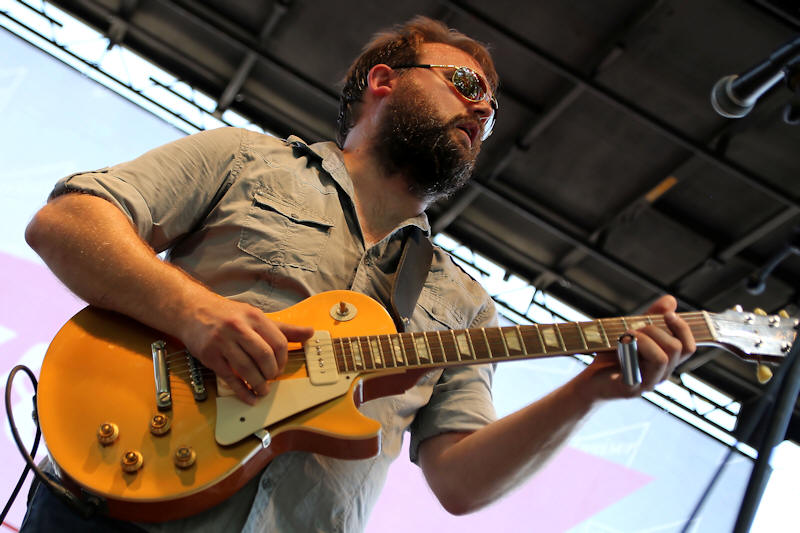
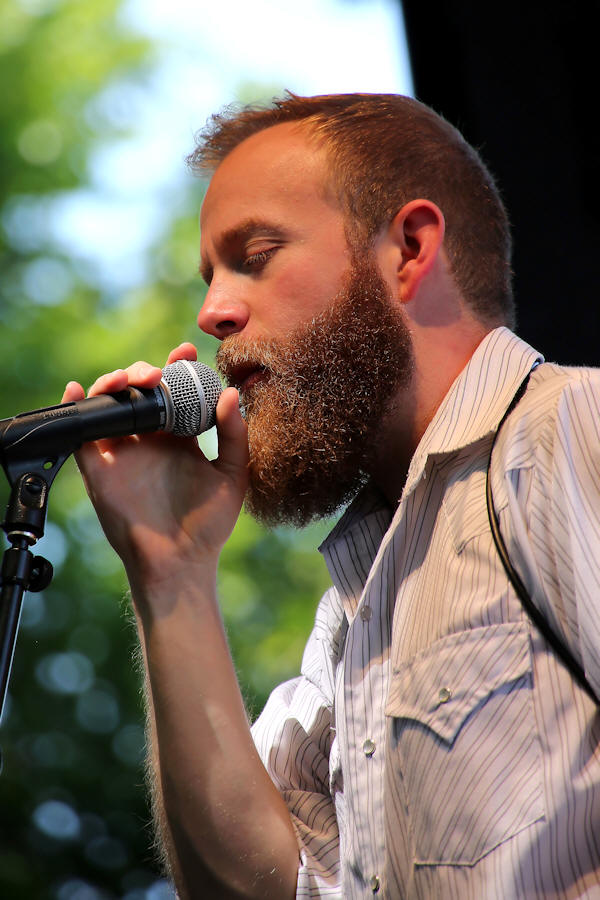
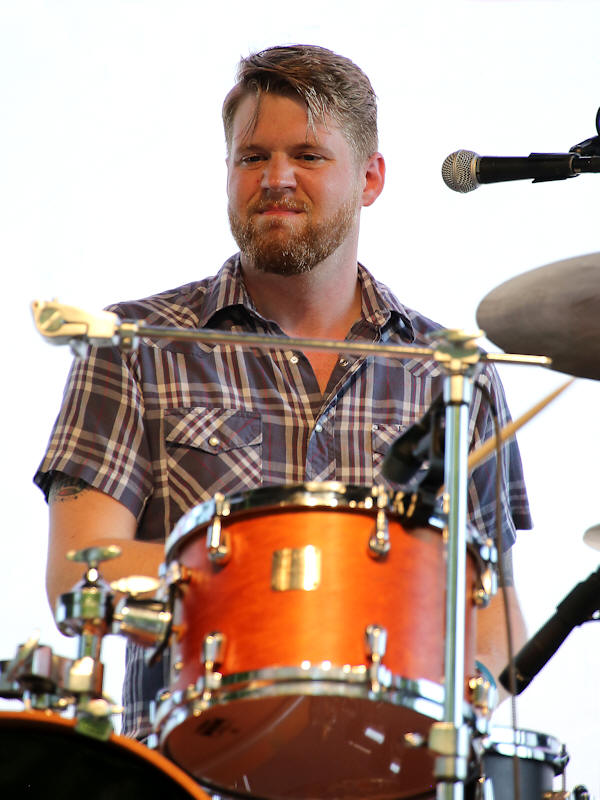
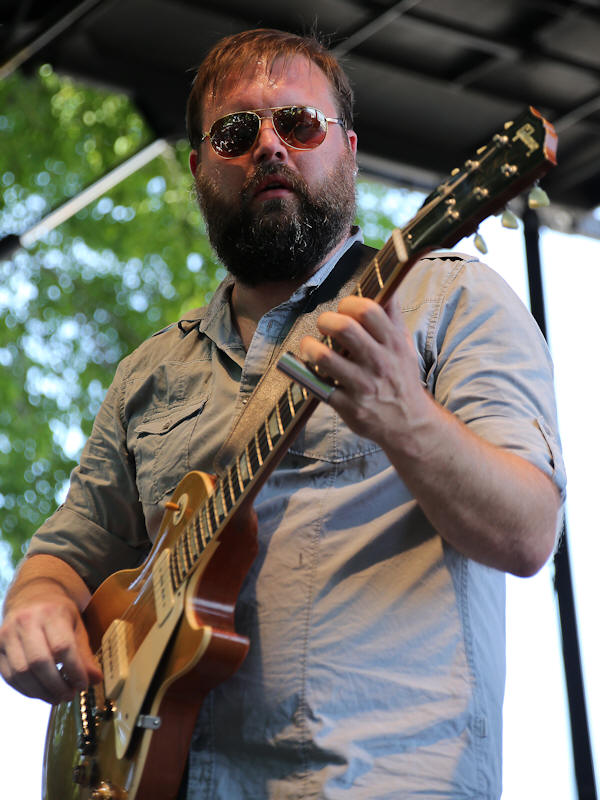
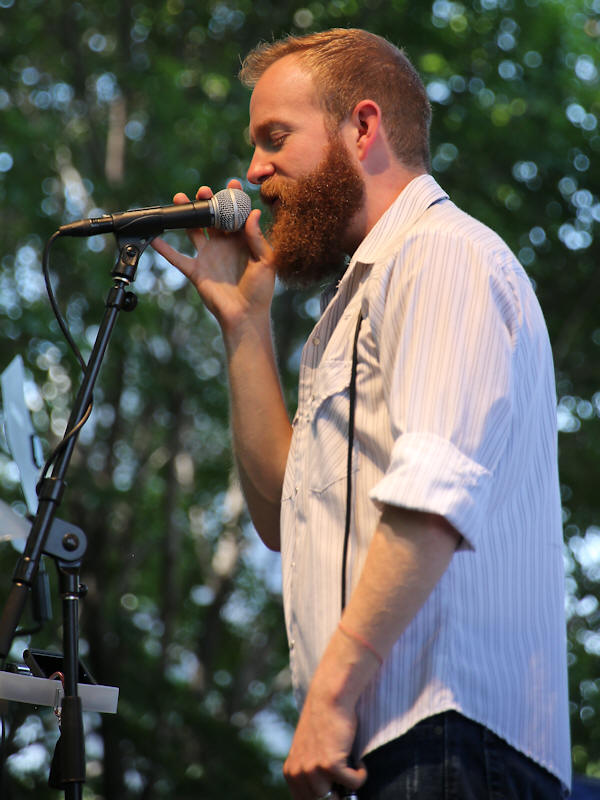
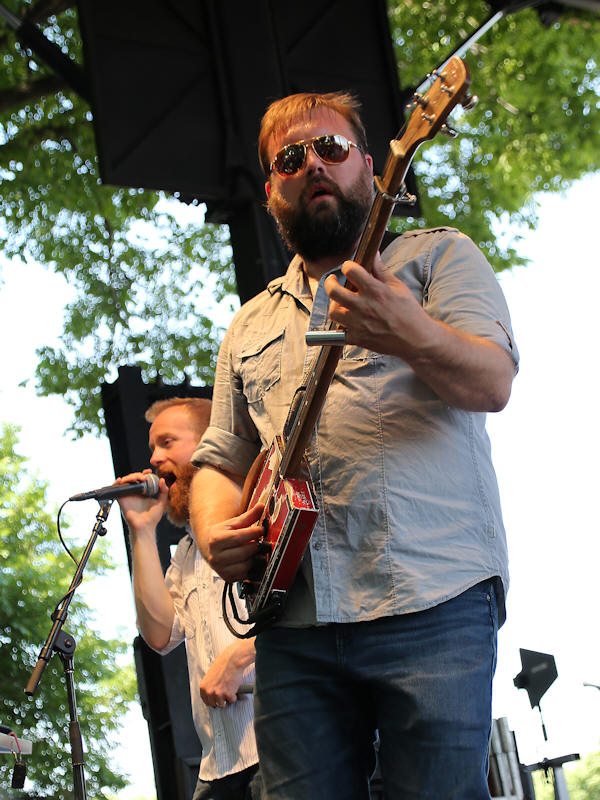
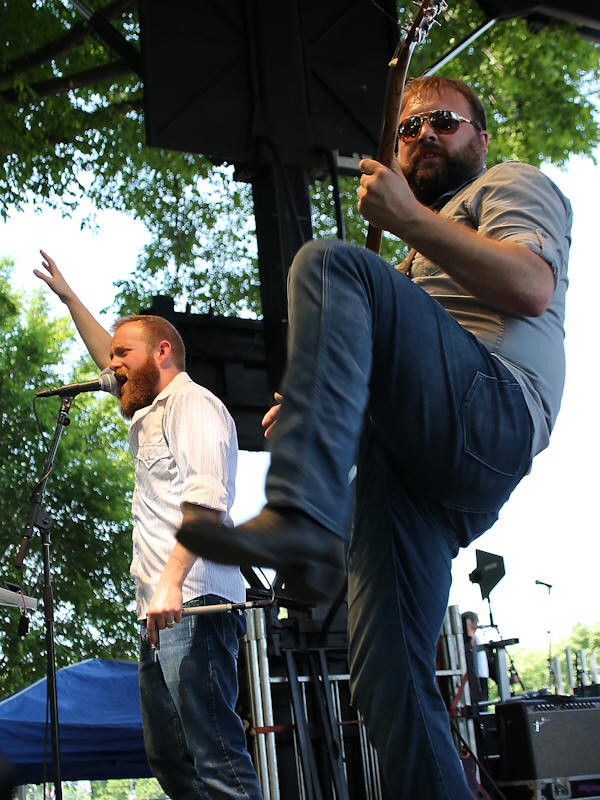
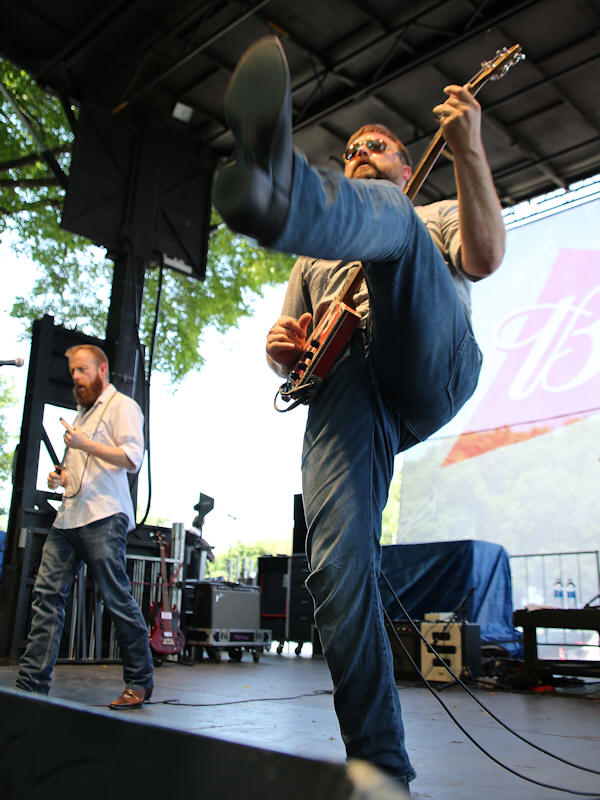
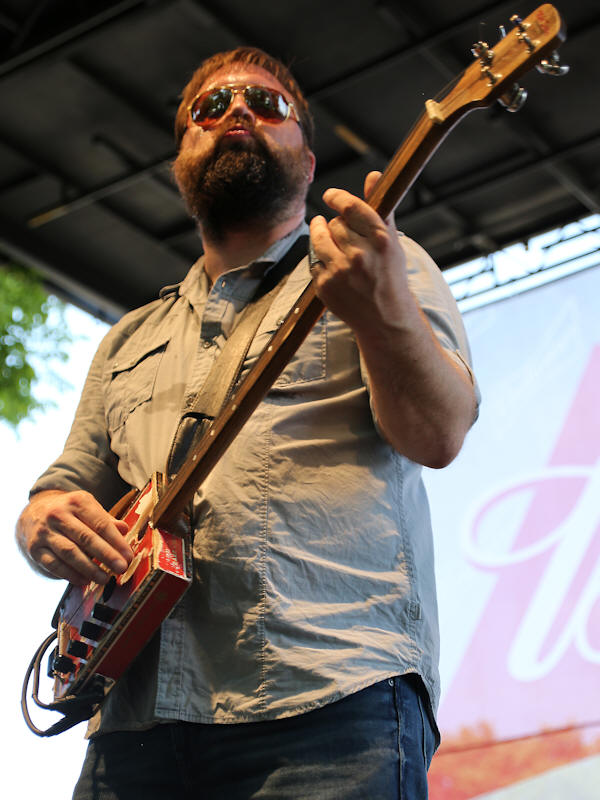
|
Pat Brown |
|
|
The former Pat Rush was born in Meridian, Mississippi. She attended Harris Jr.
College, also in Meridian, where she joined a group called The Dynamics which
later became The Commodores. As a child, her Idols and babysitters were Al
Wilson (Show & Tell), David Ruffin and Jimmy Ruffin "who all pushed or inspired
me to continue to sing and work hard" says Brown. After college she moved to
Jackson, Mississippi where she began her recording career. She struck gold on
her first album with the great "Equal Opportunity" which has become a southern
soul anthem and her signature song. |
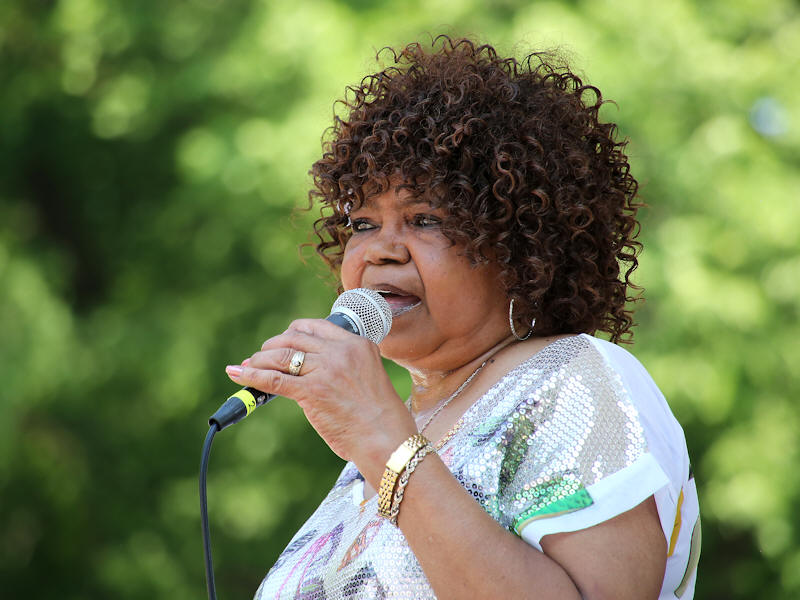
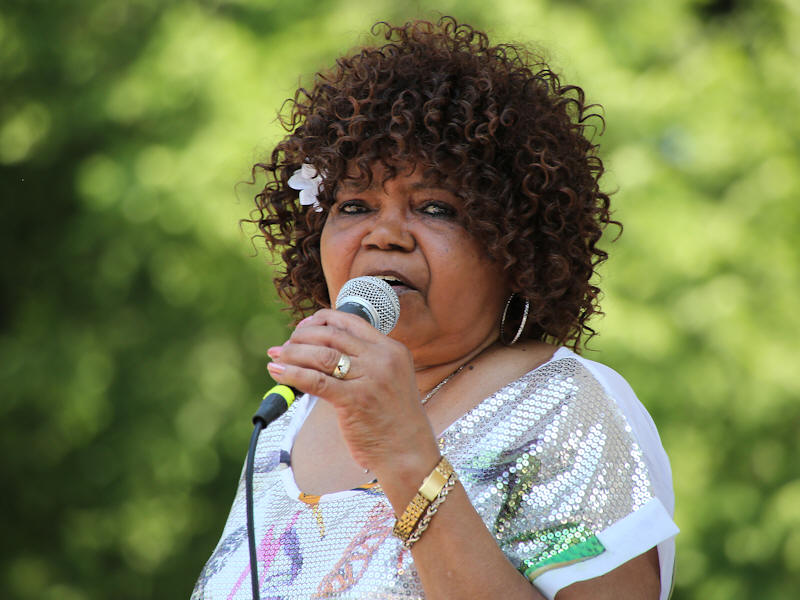
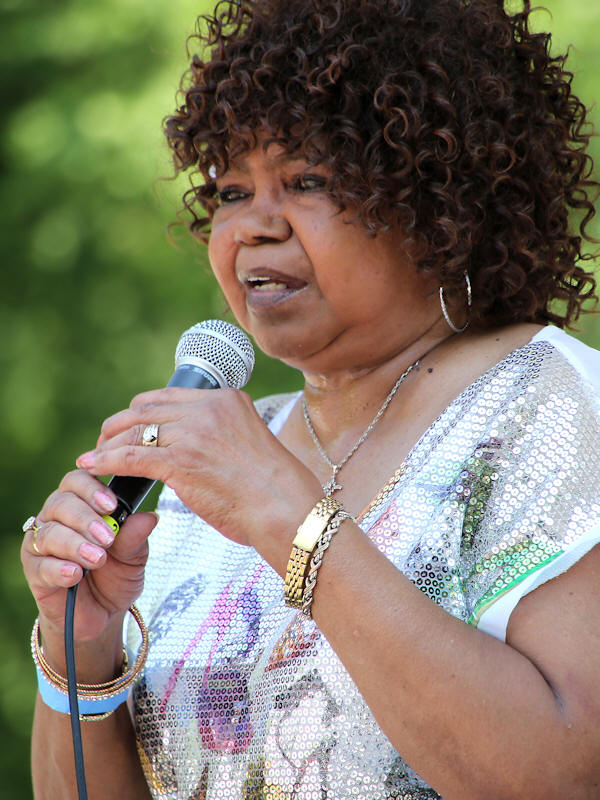
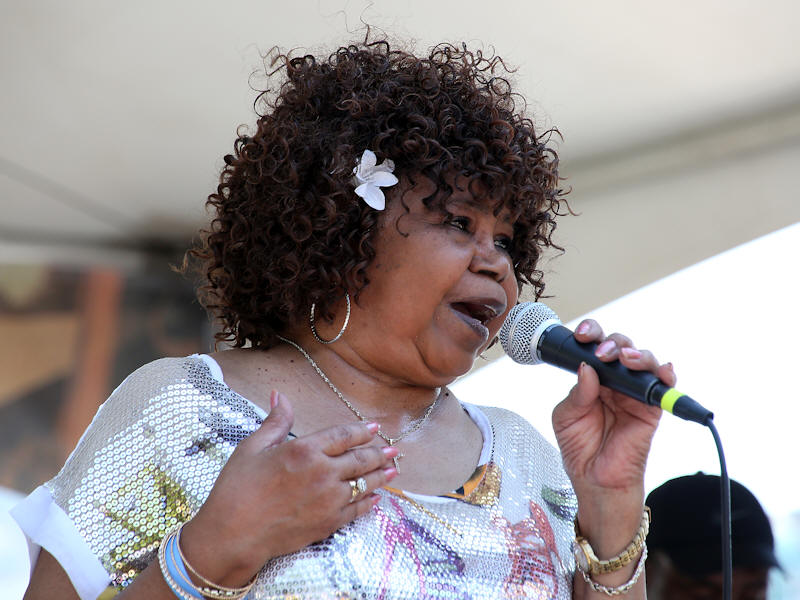
|
|
Eddie Shaw & The Wolfgang |
www.eddieshawsax.com
|
|
Early Years
Eddie Shaw was born March 20, 1937, in Benoit, Mississippi, and
grew up in nearby Greenville, where his adolescent friends
included a number of musicians who would one day become fellow
Chicago bluesmen, such as Little Milton Campbell, Left Hand
Frank Craig, Johnny “Big Moose” Walker and L.V. Banks. He and
his close companion Oliver Sain were just two of the many blues
and jazz horn players to come from Coleman High School. They
joined other formally trained musicians in Greenville’s
sophisticated, urban jump-blues bands, which featured four- and
five-man horn sections. Shaw and Sain made the rounds of the
local nightclubs, schools, and dances, and often traveled
through the Delta to play with bands such as Ike Turner’s and
Guitar Slim’s. Shaw, who played trombone and clarinet before
switching to saxophone, also put in some time with more
traditional local bluesmen like Sain’s stepfather, Willie Love,
and guitarist Charles Booker.
Chicago
In 1957, Shaw sat in with the Muddy Waters band in Itta Bena,
Mississippi. Waters hired him on the spot and Eddie arrived in
Chicago as a member of the top band in town. The Chicago bands
of Waters and Howlin' Wolf were built around amplified country
blues, and Shaw found that he had to play differently in
Chicago from the way he had in Mississippi. He was usually the
only horn player in the band and no longer had section
arrangements or short, set parts to play, but he adapted to the
new demands as a soloist. He spent a few months with Waters, a
few months with Wolf, went back to Greenville for a short stay,
and then settled in Chicago for good. He rejoined Wolf for
about two years, moved on to the Otis Rush band, and during the
‘60s worked most often with Magic Sam on the West Side. In
between, there were plenty of weekend gigs with any band that
needed a sax man for a night or two - “in and out of bands, up
and down the highway,” said Shaw.
Shaw sang and fronted his own band from time to
time, using guitar players such as Luther “Guitar Jr.” Johnson,
Magic Sam, and Jesse Robinson. He played on recording sessions
with Jimmy Dawkins. Freddie King, Magic Sam, Howlin' Wolf, and
others, and occasionally took his band into the studio to record
dubs for promotional use on jukeboxes and on Big Bill Hill’s
local radio and TV programs. One such recording, an
instrumental called “Blues For The West Side,” became a minor
Chicago hit when it was issued as a single by Colt Records. In
addition, he wrote songs for Willie Dixon, Andrew “Blueblood”
McMahon, Magic Sam, and Howlin' Wolf, and contributed
arrangements to sessions by Waters, Wolf, and others. Shaw's
many contributions to the blues include arranging tracks for
The London Howlin' Wolf Sessions, which featured Eric
Clapton, Bill Wyman, Ringo Starr and others.
In the midst of all this, Shaw was usually
involved in some sort of independent business venture, such
as an air conditioning and refrigeration service, a laundromat,
a barbecue joint, and a tavern, which was famed for its all-star
Monday jam sessions. For a number of years, he operated the
biggest blues club on the West Side, Eddie’s Place (The New 1815
Club), which featured such top-notch blues acts as Luther
Allison, James Cotton, Jimmy Reed, Otis Rush, Little Johnny
Taylor, Howlin' Wolf, and Mighty Joe Young.
Besides constantly touring for over two
decades, Shaw has continued to record prolifically. His debut
album, Have Blues, Will Travel, was released in 1977 on
the Simmons label and later reissued by Rooster Blues. He cut
four sides in 1978 for Alligator’s Living Chicago Blues
series with the famed Hubert Sumlin on guitar. Since then, he’s
cut a couple of albums for Rooster Blues, one for the French
Isabel label (issued in the USA by Evidence), five for the
Austrian Wolf label, and one for Chicago’s own Delmark Records. |
|
|
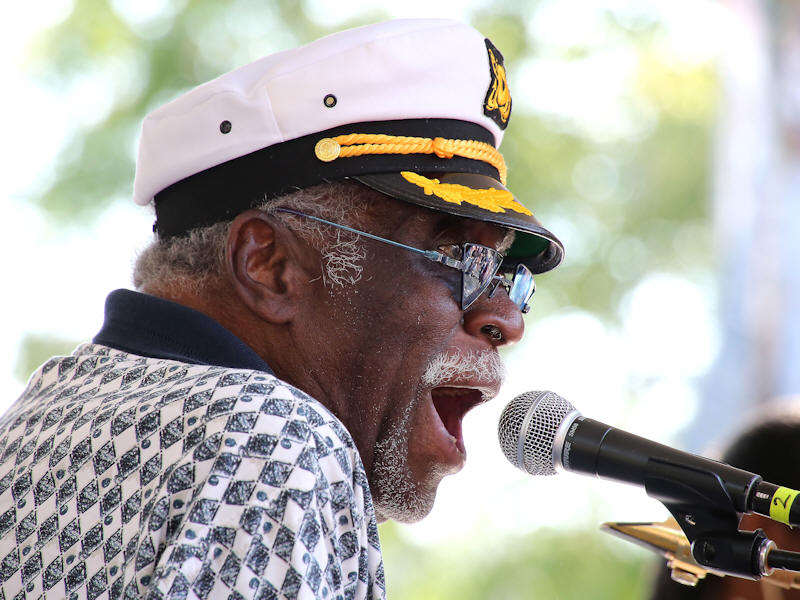
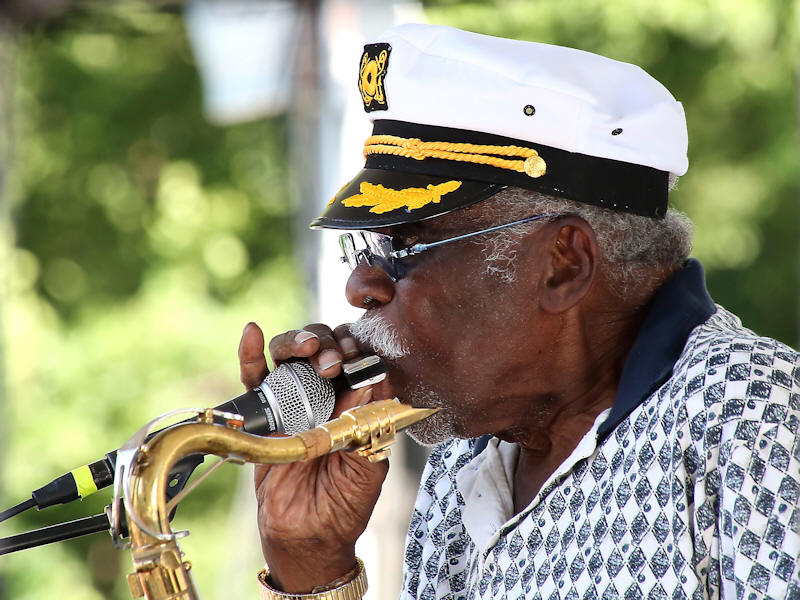
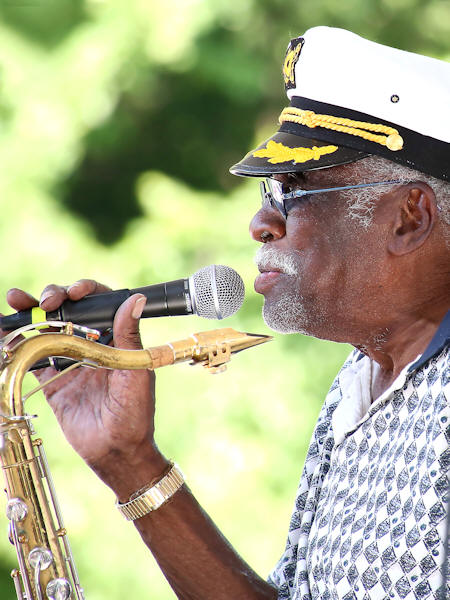
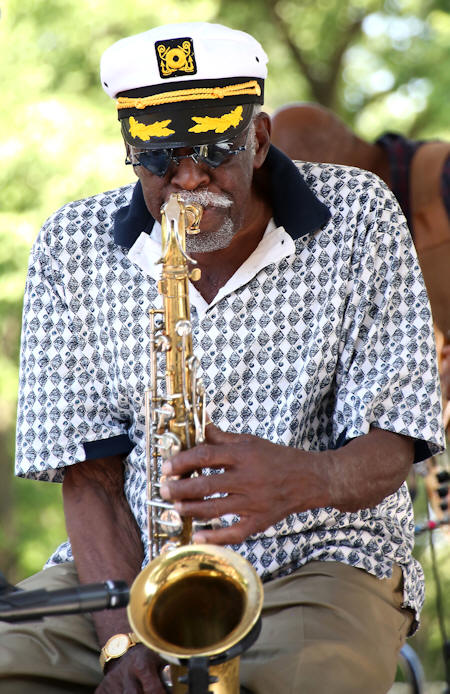
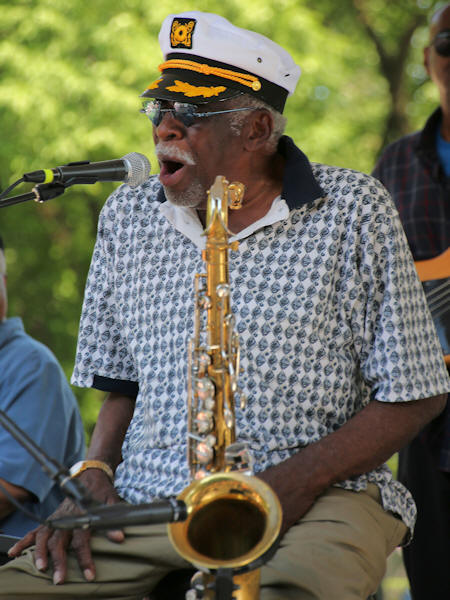
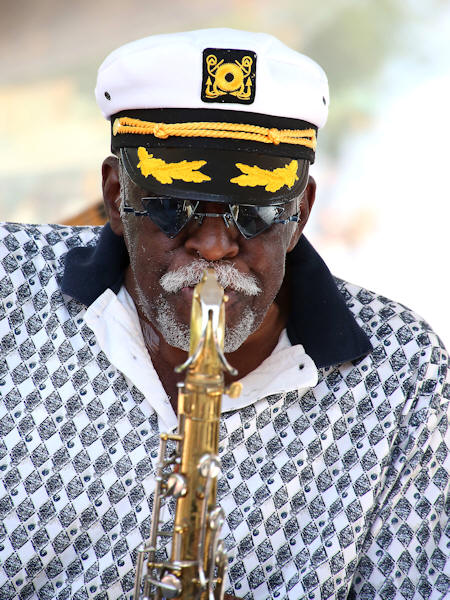
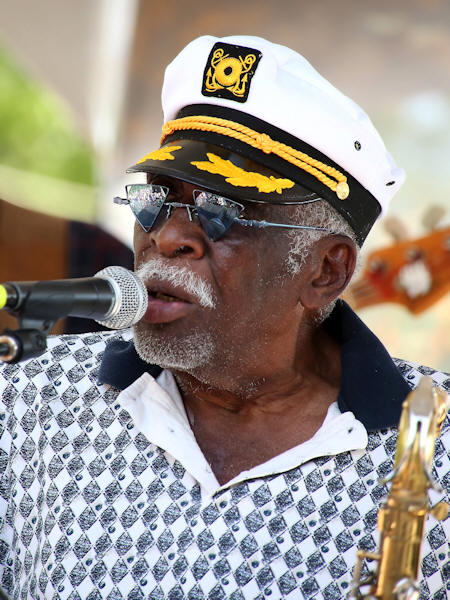
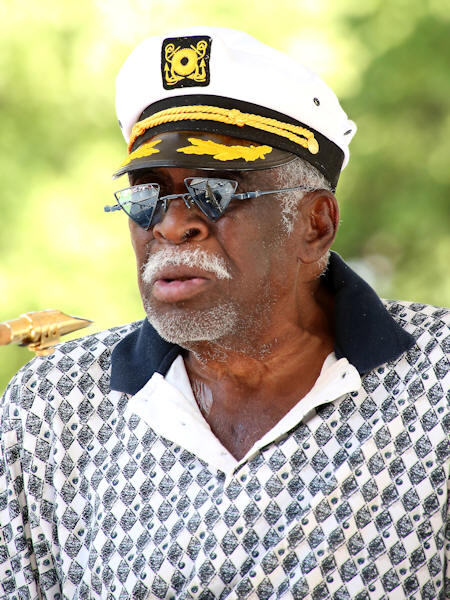
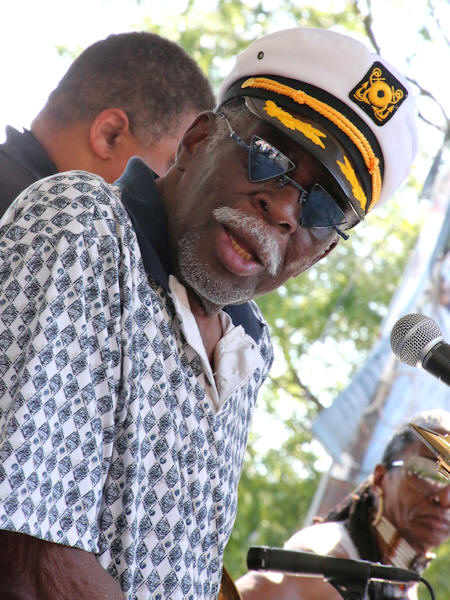
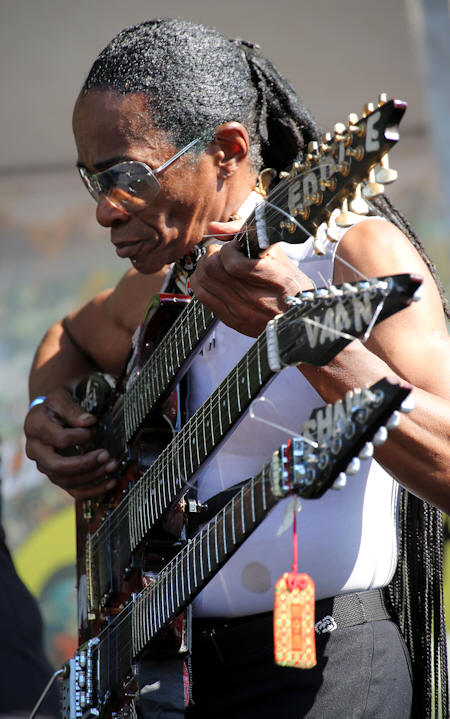
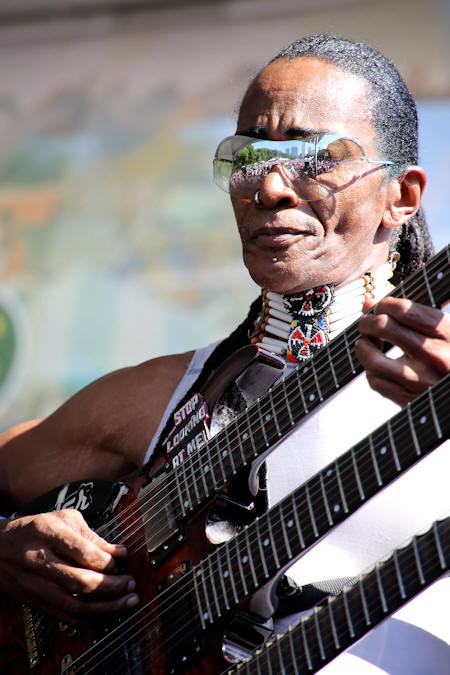
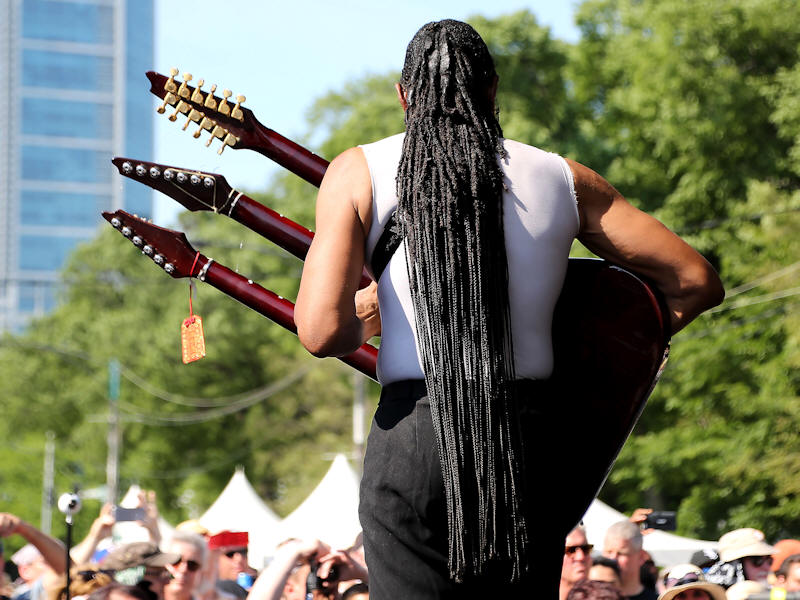
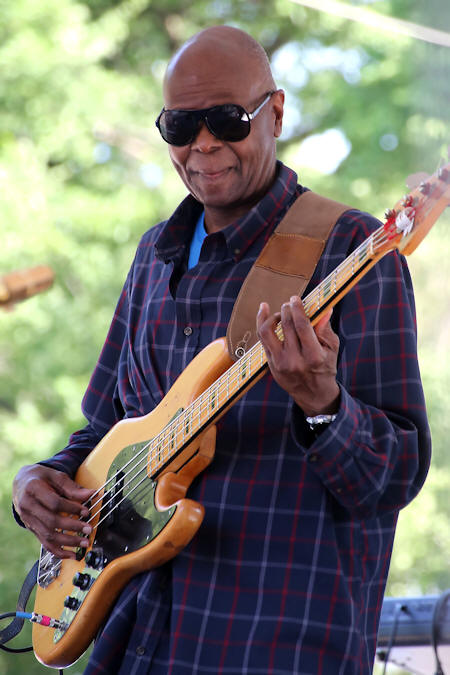
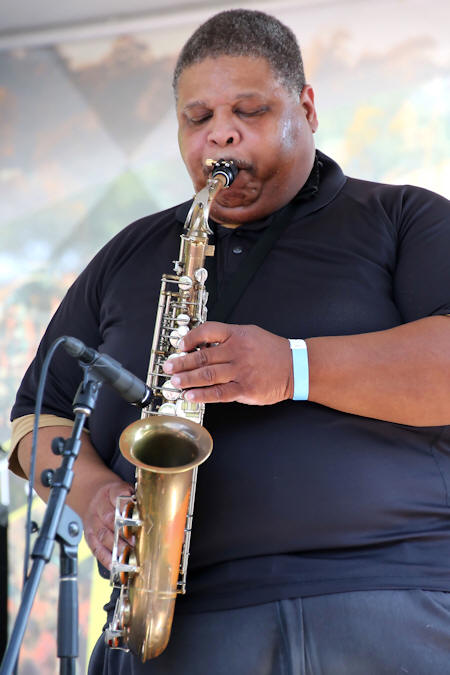
|
|
Fruteland Jackson |
|
|
Fruteland Jackson (born June 9,
1953) is an American electric blues guitarist, singer and
songwriter. Henry Townsend stated, "My respect for Fruteland
Jackson is very high. He and my boy Alvin Youngblood Hart is the
future sound of true acoustic blues." He has also worked with
children to raise awareness of blues music and has been honored
for his work in that field, including in 1997 being granted a W.
C. Handy Award for "Keeping the Blues Alive" in Education.
Jackson was born in Doddsville, Mississippi, the son of an
insurance underwriter, and he relocated with his family to
Chicago in the 1960s in order to secure better employment and
education outlooks. His father was employed by North Carolina
Mutual Insurance Company, and his mother worked as a nurse at
Chicago's Cook County Hospital. He received his first guitar
from his uncle when aged 12, and played in high school band
before receiving further education at Roosevelt University.
Jackson got married and worked as a private investigator then
for the Illinois Department of Human Rights. By the mid 1980s,
Jackson had relocated to Biloxi, Mississippi. His wholesale
seafood business, Camel Seafood Company, was destroyed by
Hurricane Elena and Jackson immersed himself in blues music,
inspired by the work of William R. Ferris. He learnt the music
of Johnny Shines, Howlin' Wolf, Muddy Waters and the earlier
Robert Johnson songs, with the view of working as an educator,
activist and musician.
Jackson has appeared at the
Chicago Blues Festival and Boundary Waters Blues Festival, as
well as working in schools across the United States. He
perfected two presentation styles to educate children about
blues music, and he was known as Mr. Fruteland by those who he
taught. Jackson worked with the Blues Foundation to create a
teaching program called "All About the Blues". In 1996 the
Illinois Arts Council granted him their Folk/Ethnic Heritage
Award. The Blues Foundation followed by naming Jackson as a
recipient of their 'Keeping the Blues Alive Award.
In 1999 he published the
educational book, Guitar Roots: Delta Blues - The roots of
great guitar playing. He has also penned a one-act play
entitled, The Life and Times of Robert Johnson. Also in
1999, Jackson was signed to a recording contract by Electro-Fi
Records I Claim Nothing But the Blues (2000), was
followed by Blues 2.0 (2003). The latter was nominated for a W.
C. Handy Award, and the magazine, Blues Revue named it
"one of the finest blues albums of this young decade." Tell
Me what You Say was Jackson's latest album release in 2006. |
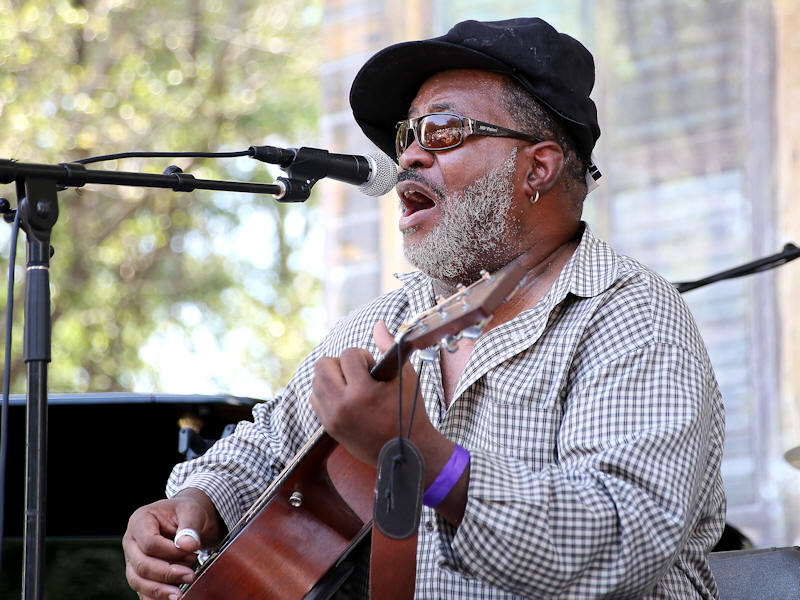
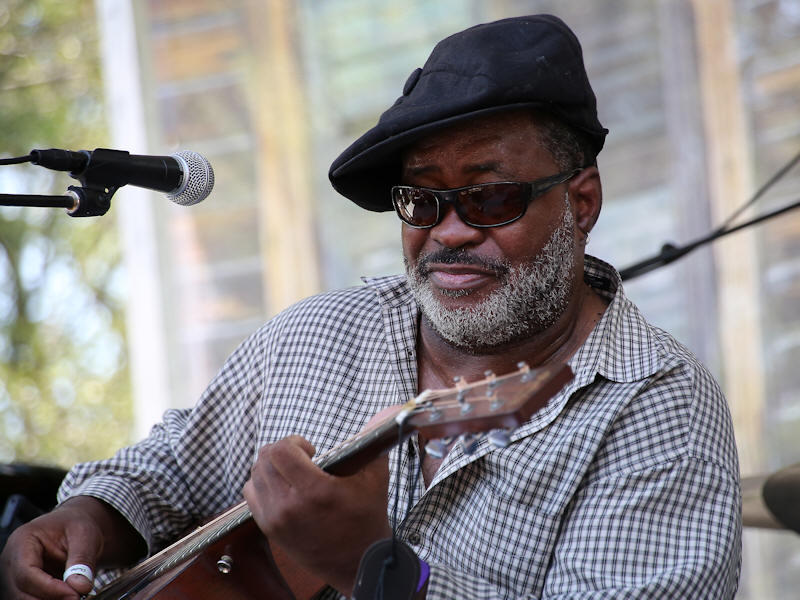
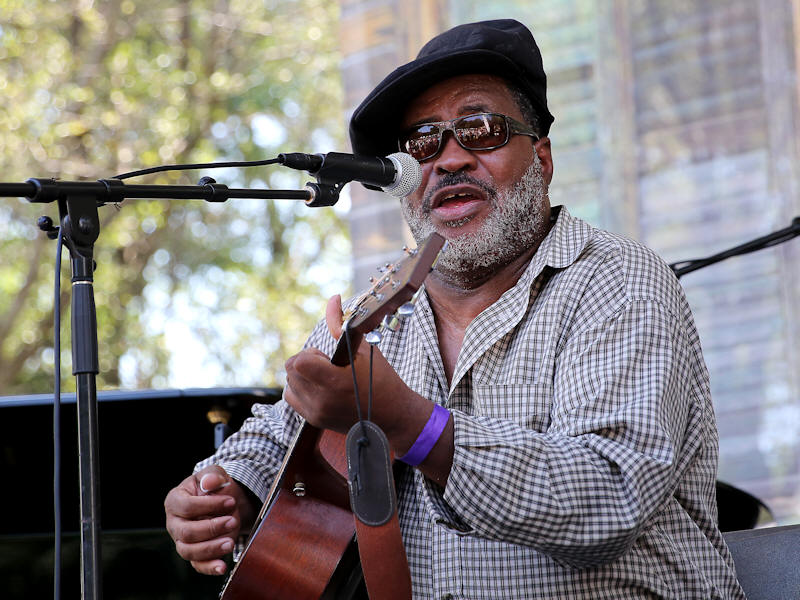
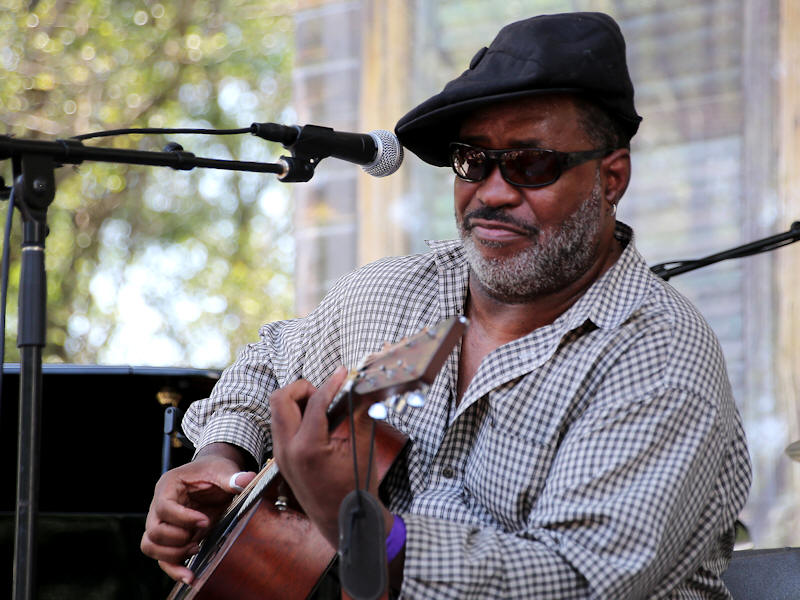
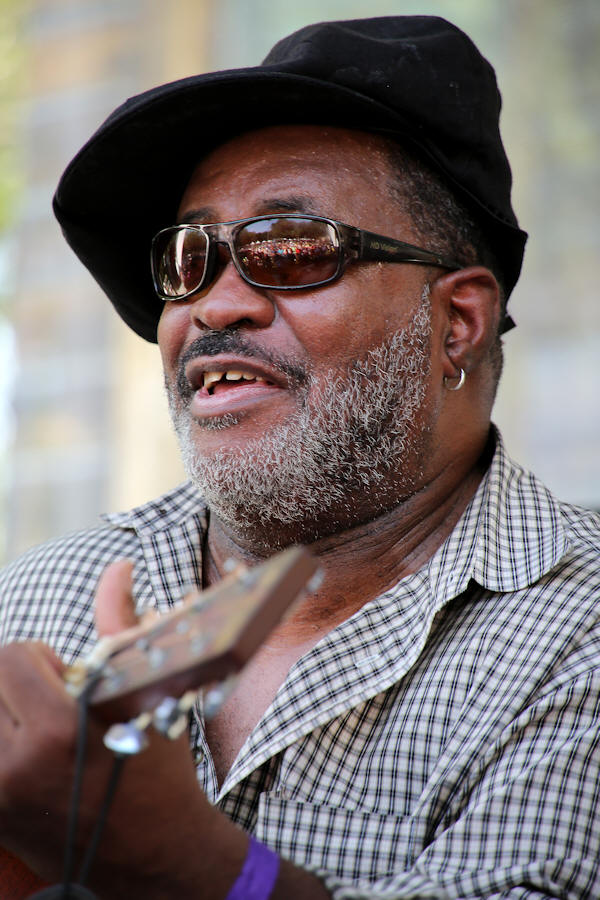
|
Legends of Blues with Sam Lay, Corky Siegel & Marcella
Detroit |
|
Sam Lay
(born March 20, 1935, Birmingham, Alabama) is an American
drummer and vocalist who has been performing since the late
1950s. Lay began his career in 1957, as the drummer for the
Original Thunderbirds. He soon after became the drummer for the
harmonica player Little Walter.
In the early 1960s, Lay began recording and
performing with prominent blues musicians, including Willie
Dixon, Howlin' Wolf, Eddie Taylor, John Lee Hooker, Junior
Wells, Bo Diddley, Magic Sam, Jimmy Rogers, Earl Hooker, and
Muddy Waters. The recordings Lay made during this time, along
with Waters's album Fathers and Sons, recorded in 1969,
are considered to be among the definitive works of Waters and
Wolf.]
In the mid-1960s, Lay joined the
Paul Butterfield Blues Band and recorded and toured extensively
with them. Bob Dylan used Lay as his drummer when he introduced
electric rock at the Newport Folk Festival in 1965. Lay also
recorded with Dylan, notably on the album Highway 61
Revisited (Lay drummed on the track "Highway 61"; the
drummer on most of the other tracks was Bobby Gregg). Lay's
drumming can be heard on over 40 recordings for Chess Records,
with many notable blues performers. He toured the major blues
festivals in the US and Europe with the Chess Records All-Stars.
In the late 1980s Lay was
inducted into the Blues Hall of Fame, in Memphis. He has also
been inducted into the Jazz Hall of Fame, in Los Angeles, and
the Rock n' Roll Hall of Fame, in Cleveland. He was nominated
eight times for the coveted W. C. Handy Award for Best
Instrumentalist, including a nomination in 2005.
Lay made two albums with his own
band, released by Appaloosa Records and Evidence Records, and
two recordings for Alligator Records with the Siegel-Schwall
Band.[1]
His own album, Sam Lay in Bluesland, released in 1969 by
Blue Thumb Records, was produced by Michael Bloomfield and Nick
Gravenites.
He was nominated in 2000 for a
Grammy Award for his performances on the CD Howlin' Wolf
Tribute. He was honored by the Recording Academy in January
2002 with a Legends and Heroes Award for his significant musical
contributions. He was prominently featured in the PBS television
documentary History of the Blues, broadcast in seven
episodes, produced by the Academy Award–winning director Martin
Scorsese. Lay shot many home movies of fellow blues performers
in small Chicago venues in the late 1950s and 1960s. parts of
which were included in History of the Blues and the WTTW
television production Record Row, by the filmmaker
Michael MacAlpin. Lay was inducted into the Rock & Roll Hall of
Fame, as a member of the Paul Butterfield Blues Band, in 2015.
---------------------------------------------------------------------
Mark Paul "Corky" Siegel
(born October 24, 1943) is an American musician,
singer-songwriter, and composer. He plays harmonica and piano.
He plays and writes blues and blues-rock music, and has also
worked extensively on combining blues and classical music. He is
best known as the co-leader of the Siegel-Schwall Band, and as
the leader of the Chamber Blues group. Corky Siegel's
professional music career began in 1964, when he met guitarist
Jim Schwall. Both were studying music at Roosevelt University in
Chicago. The two became a duo, performing blues music. They
landed a regular gig at Pepper's Lounge, where well known,
established blues musicians such as Muddy Waters, Howlin' Wolf,
and Willie Dixon would often sit in. After a while the duo
became a quartet, the Siegel-Schwall Band.
The Siegel-Schwall Band enjoyed
increasing popularity, and by 1967 were touring nationally,
playing at large rock venues like the Fillmore West and sharing
the bill with famous rock bands. Between 1966 and 1974, they
released ten albums. After 1974, they stopped playing concerts,
but the band re-formed in 1987. They still play occasional live
dates and have released two albums of new material.[7]
The band currently features drummer Sam Lay and bassist Rollo
Radford; Lay played with Siegel in the Happy Year Band of 1973
which also featured Chicago blues guitarist Albert Joseph.
The idea of combining blues
and classical music was first suggested by classical conductor
Seiji Ozawa. Ozawa brought together the Siegel-Schwall Band and
the Chicago Symphony Orchestra. They first performed "Three
Pieces for Blues Band and Symphony Orchestra", by
William
Russo in 1968. In 1973, the
band and Ozawa released a recording of this work performed with
the San Francisco Symphony. In 1975, Siegel and Ozawa, with the
San Francisco Symphony, first performed another William Russo
work, "Street Music: A Blues Concerto". A recording of this
piece was released in 1979.
Inspired by his collaboration
with Ozawa, Corky Siegel formed Chamber Blues in 1988. The
group's music combines elements of classical, blues, and jazz.
The band consists of a string quartet – two violins, a viola,
and a cello – along with a percussionist Frank Donaldson, Siegel
on harmonica, and sometimes doubling on piano. Chamber Blues is
still together. The group has toured nationally and has released
three albums.
Siegel has also worked on numerous other musical
projects. In 2004, he was a member of a band called the Chicago
Blues Reunion, which released the album
Buried Alive in the Blues.
--------------------------------------------------------------------
Marcella Detroit is an American soprano
vocalist, guitarist, and songwriter. She released her debut
album Marcella in 1982 to little success before she joined
Shakespears Sister with ex-Bananarama member Siobhan Fahey.
Detroit sang the lead vocals on their biggest hit, "Stay", which
was number one in the United Kingdom for eight consecutive
weeks. Since leaving the band in 1993, Detroit has maintained a
successful solo career, and from 2002 to 2007 fronted her own
self-titled blues band.
|
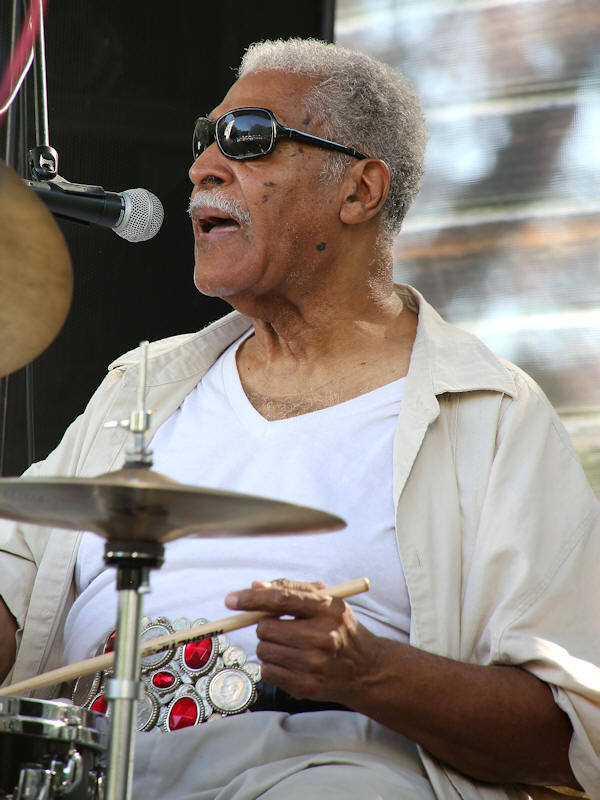
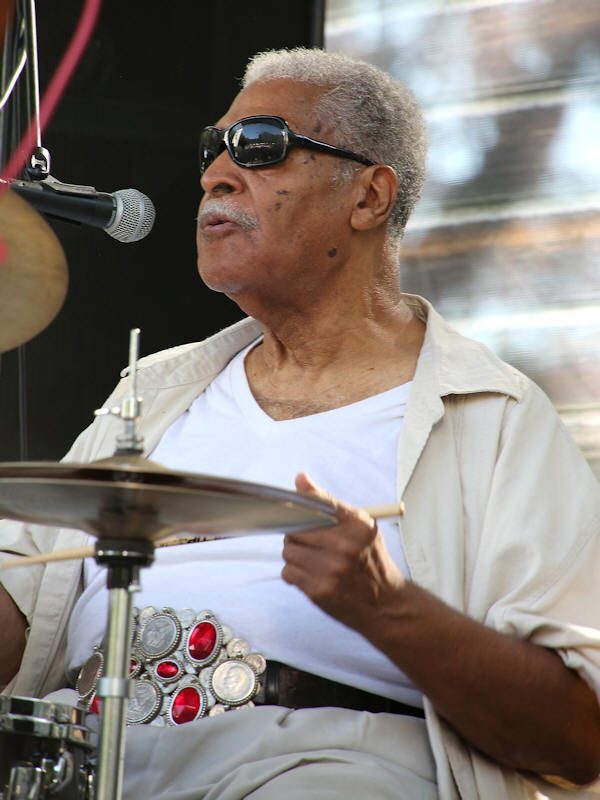
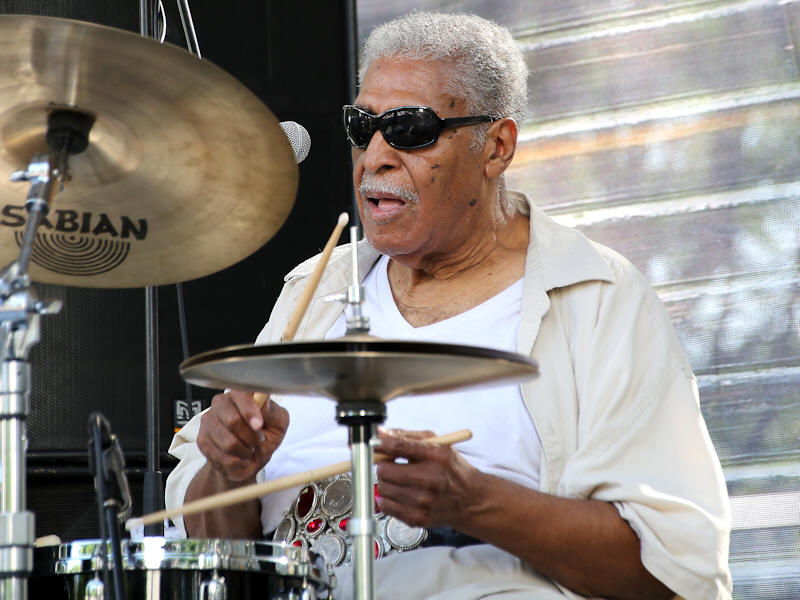
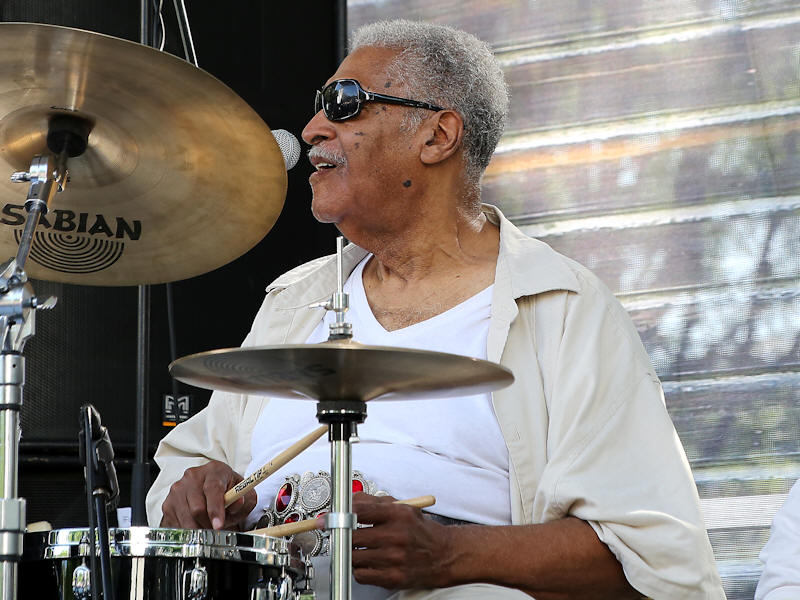
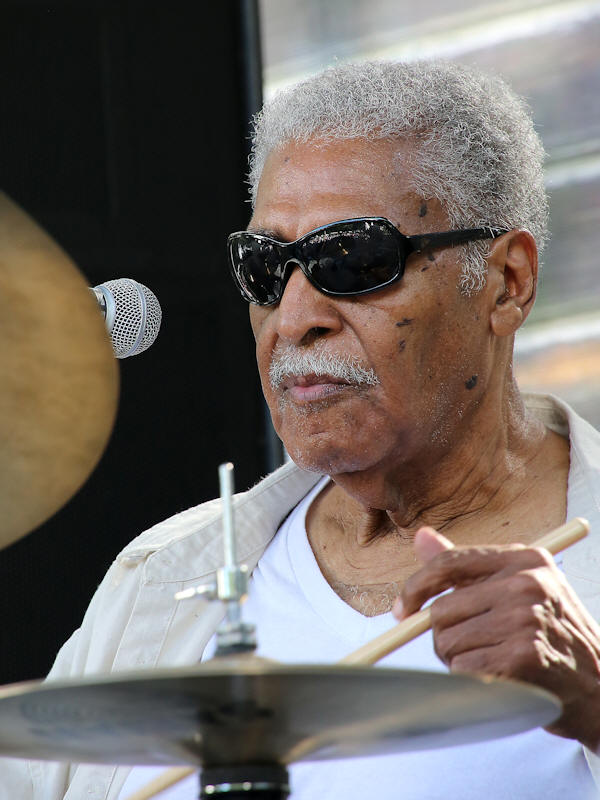
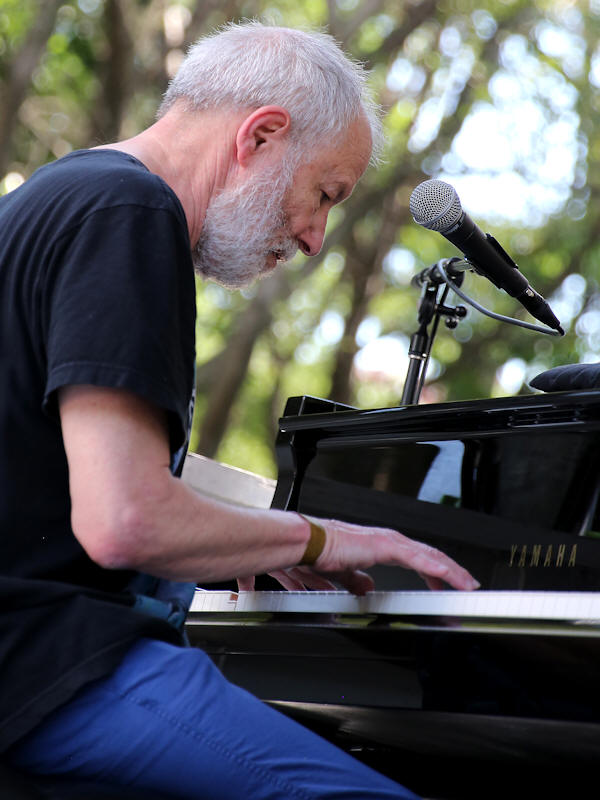
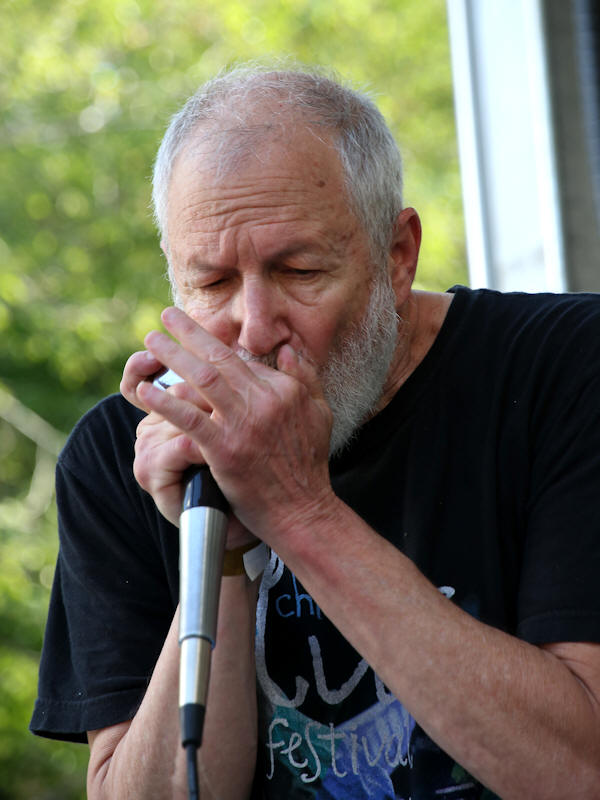
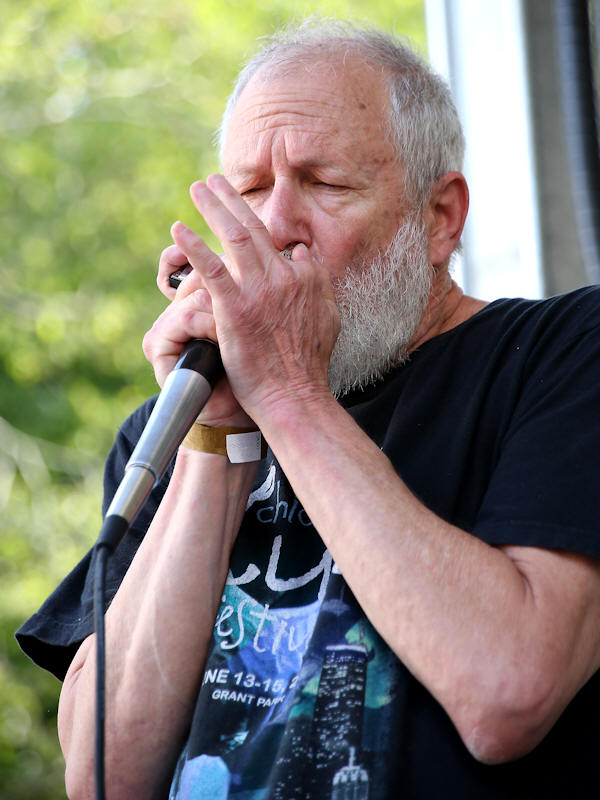
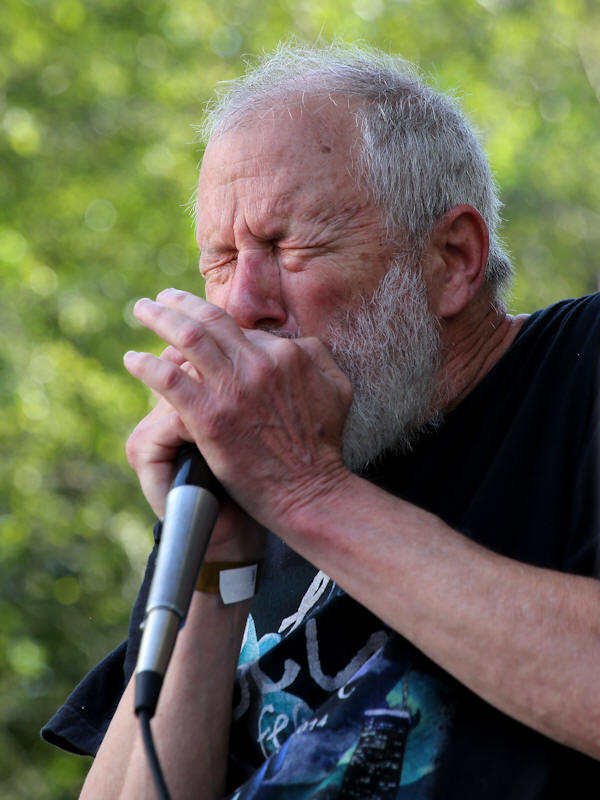
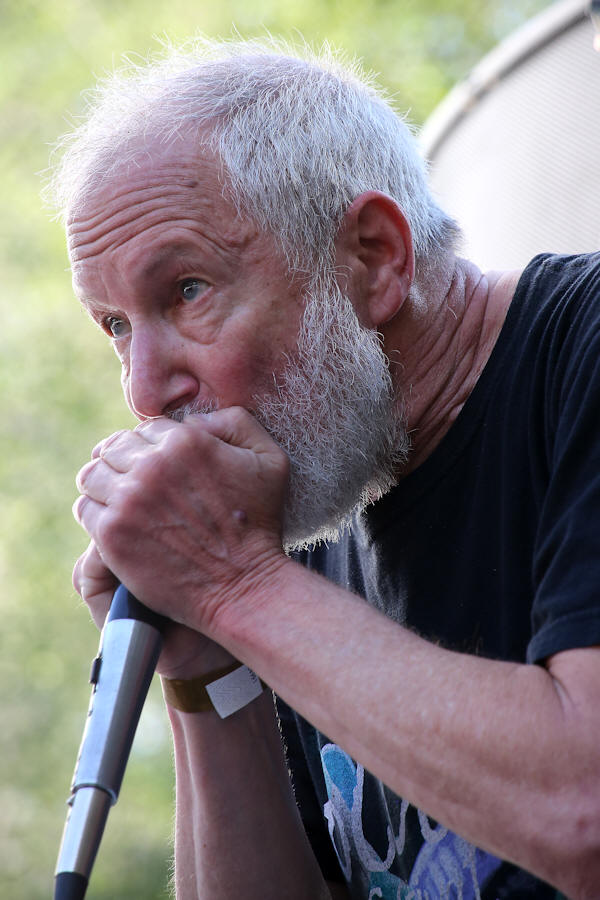
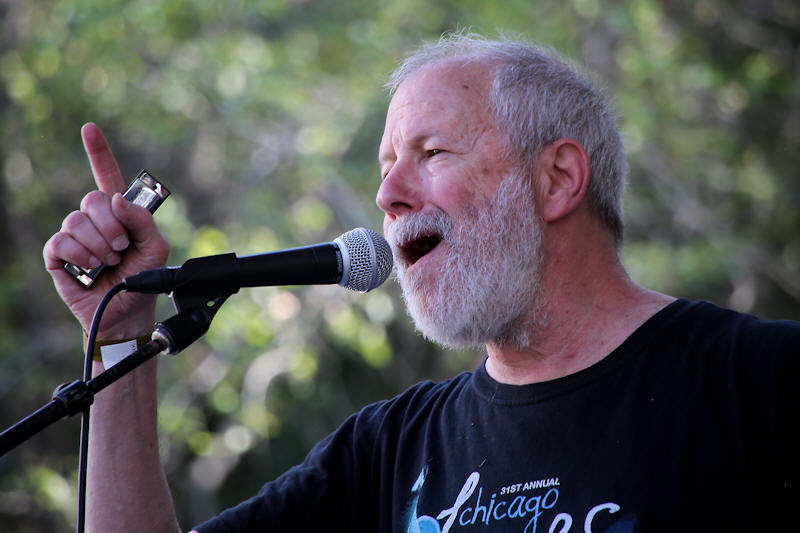
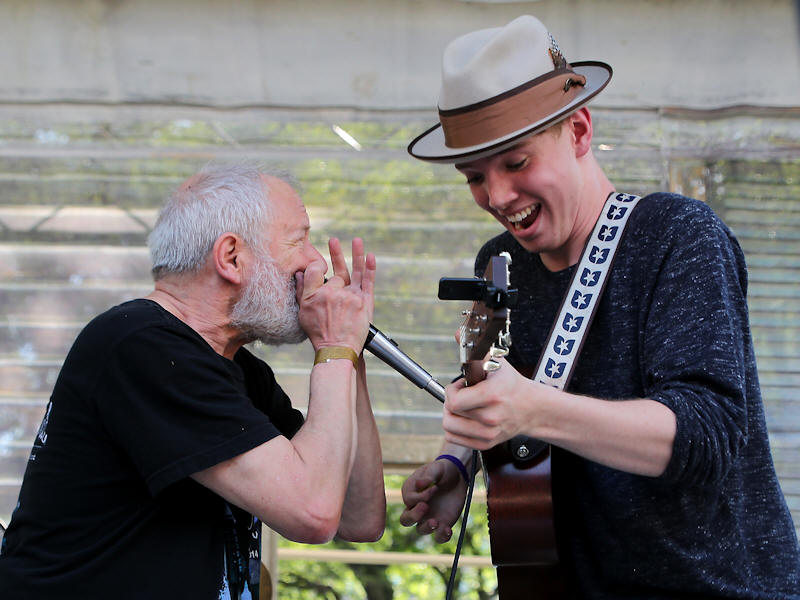
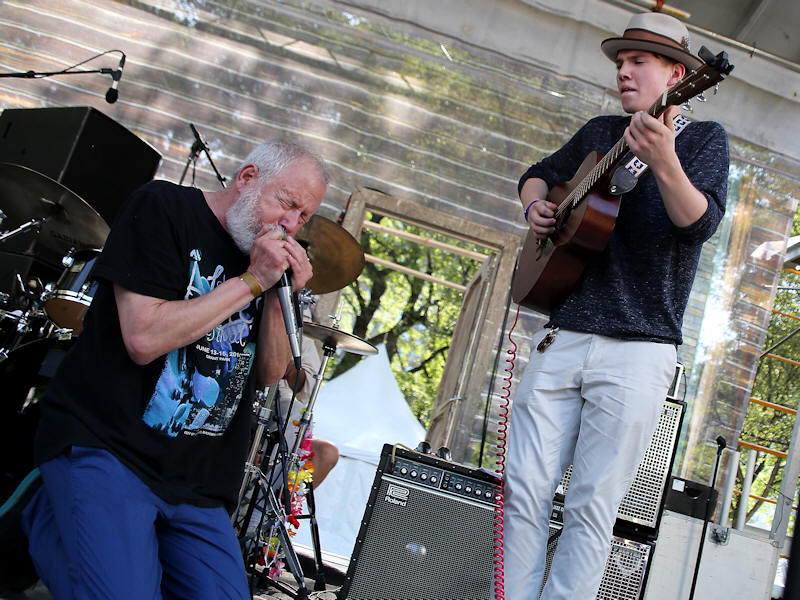
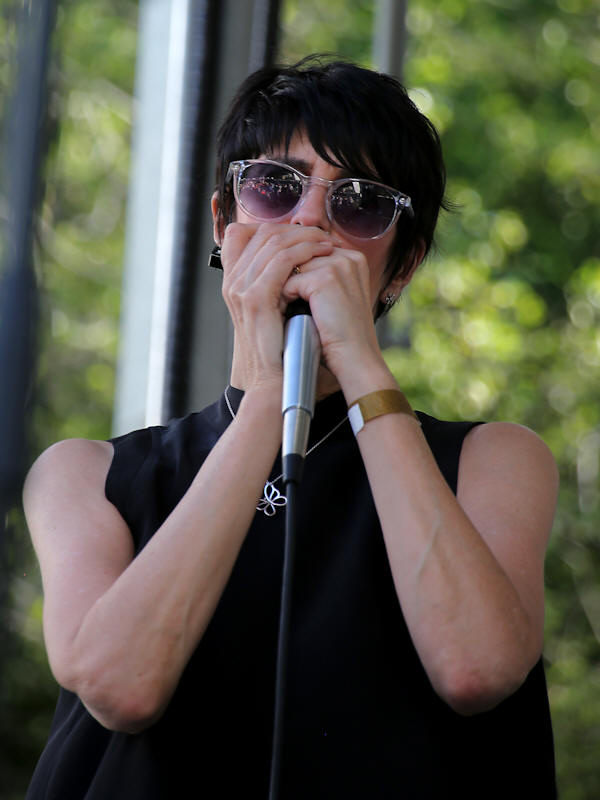
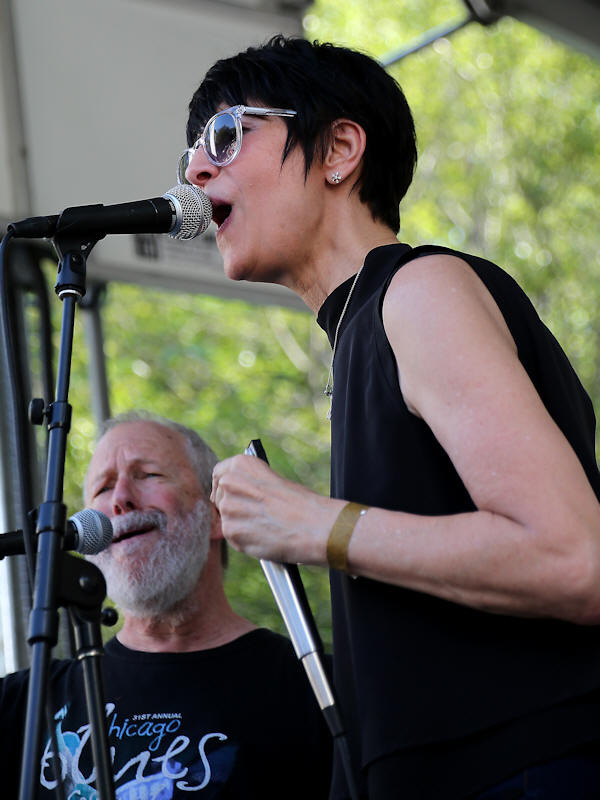
|
|
___________________________________________________________________
Website, Photos and Text © Copyright 2000-2016 Alan
White. All Rights Reserved.
For permission to copy, email:
alan.white@earlyblues.com

Click on the logo for the main blues festivals menu

Click on the logo for the main website menu
|
|
|